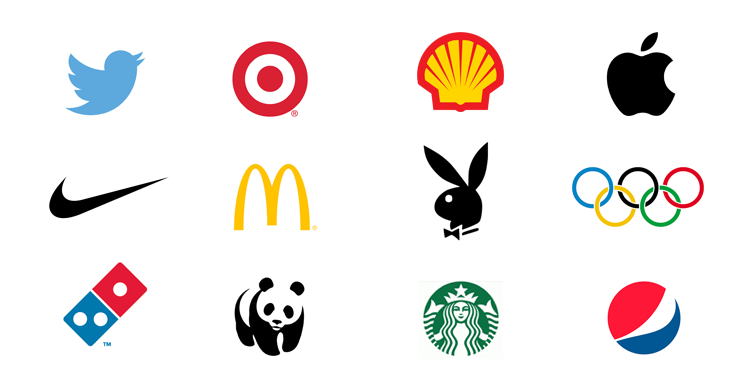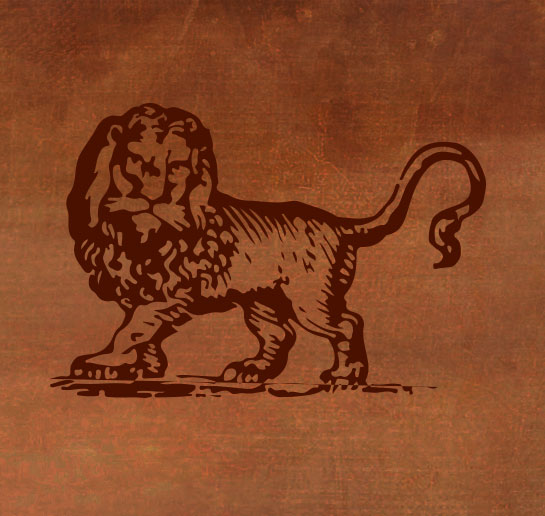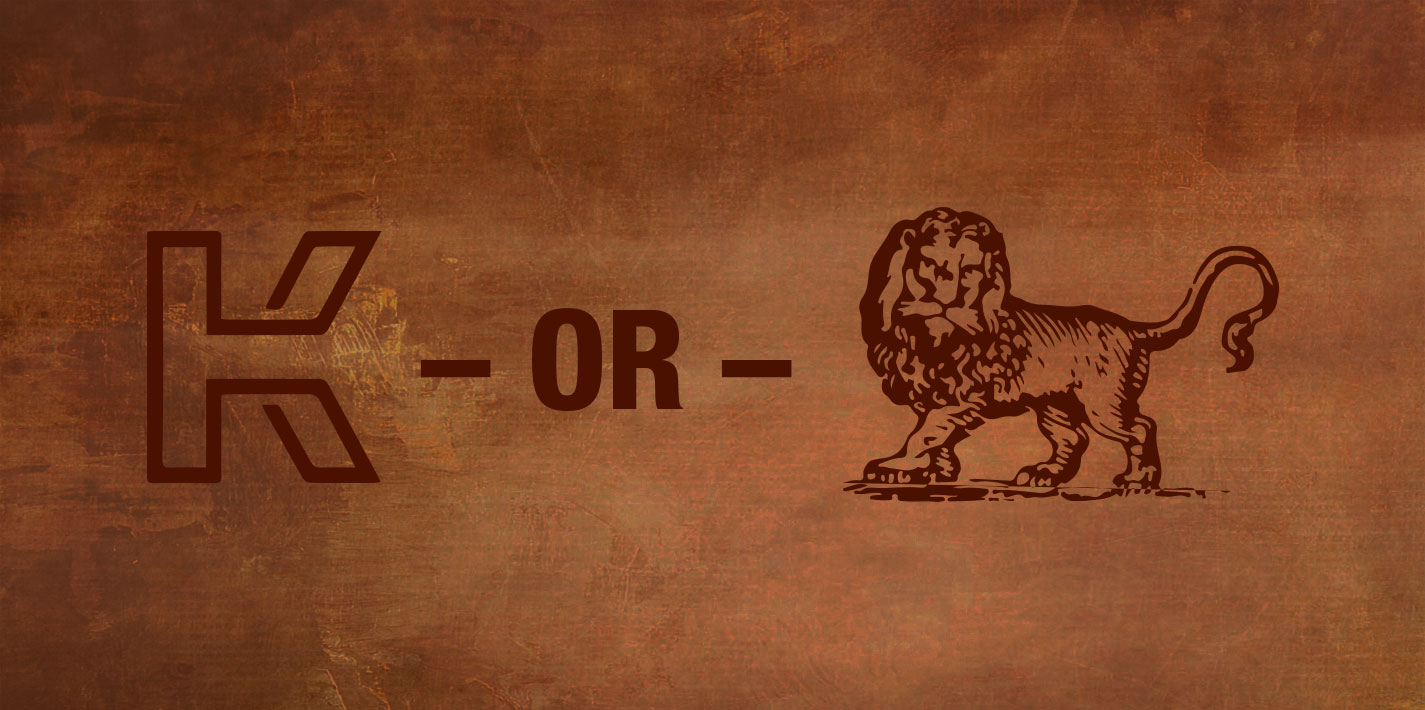
Types of logos
Examples of logos can be useful for clients during a brand identity project.
Here’s a roundup of four different types of logos:
lettermarks, wordmarks, pictorial marks & combination marks
Lettermarks
Lettermarks are just what they sound like: logos that are made of letters. Whether you call them monograms, initials, or acronyms, they’re in the same category.
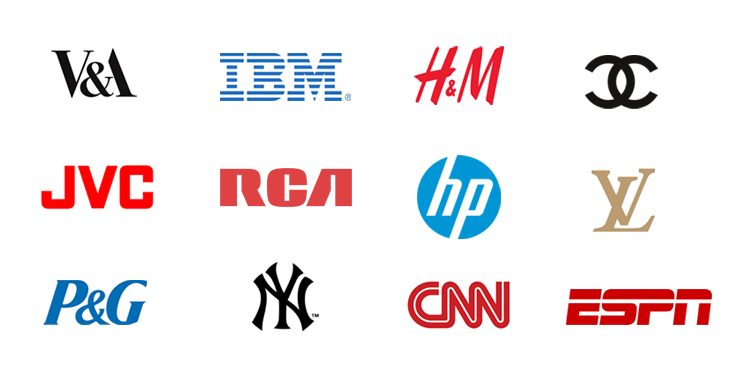
Wordmarks
Wordmarks are logos made of… wait for it… words. The brand’s name is represented by typography, without including a symbol or picture. Don’t be tempted to think “somebody just typed out that name in a font.” Good wordmarks are carefully crafted to have a visual rhythm throughout the word, balancing white space, line weights, and the way the letters interact with each other. Wordmarks can be classified according to style.
Serif Wordmarks
Logos made from serif lettering (where the strokes of the letters have small lines or wedges at the ends) look formal and traditional.
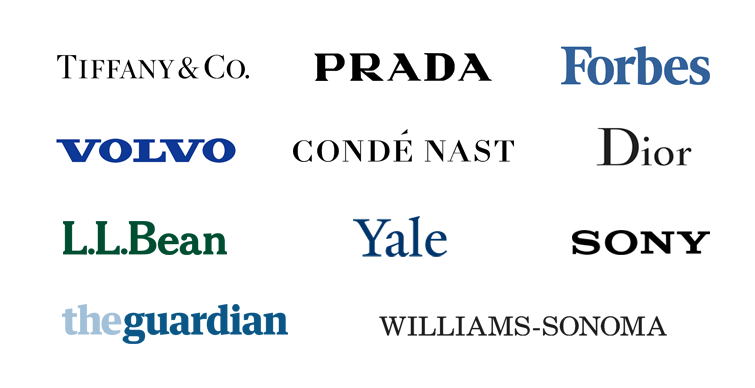
Sans-Serif Wordmarks
Logos without serifs look modern and clean.
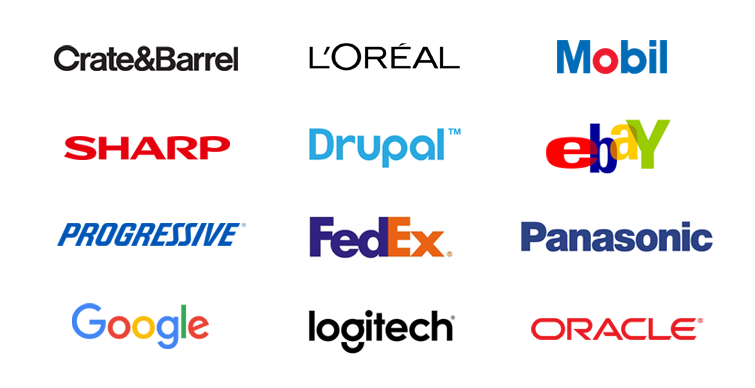
Handwritten Wordmarks
A subset of script lettering is handwriting. These casual scripts are less polished and more irregular. Handwriting-inspired logos feel personal. They’re often stylized signatures representing brands that revolve around their founder. Many fashion designers use handwriting wordmarks.
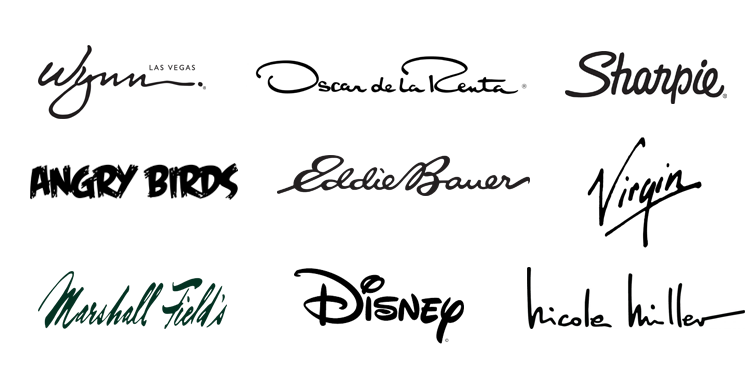
Script Wordmarks
Script wordmarks echo cursive writing or calligraphy. Letters are usually connected. Scripts can look elegant and refined (think wedding invitations) or retro (think old-school baseball logos).

Combination marks
Combination marks pair a symbol with a wordmark. (Or sometimes a lettermark with a wordmark.) In this common type of logo, the wordmark can be above, below, next to, or inside of the symbol.

Pictorial marks
Pictorial marks are the opposite of wordmarks. They are symbols without words. Most easily-recognized pictorial logos started out in a “lockup” with a wordmark company name. Over time, through repeated exposure, the symbol itself became associated with the brand. The symbol can now be used on its own, separated from the company name.
